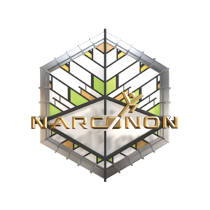The Issue Of Elderly Drug Abuse
The world-wide drug epidemic is common knowledge nowadays. A parent knows the importance of teaching his kids to stay away from drugs and peer pressure about drugs. Schools have drug-free campaigns running all the time. Drug rehabilitation clinics are bursting at the seams with people in need of help. A less visible problem, however, is the recent surge in elderly drug abuse.
Nearly thirty-five million people in the United States are sixty-five years or older. Much of the baby boomer generation is estimated to turn sixty this year. Substance abuse currently affects about seventeen percent of this population, and by 2020, the number is expected to double.
Alcohol abuse is the biggest culprit, accounting for seventy-five percent of substance treatment admissions among older adults, but a surprising number of seniors are seeking treatment for heroin addiction.
Legal Drug Abuse And The Elderly
What about legal drugs? This may be more of a situation than is being revealed. Many seniors are unwilling to talk about addiction, mostly out of shame. Experts say that a lot of home accidents occur because of drugs but you’d never know it because they don’t usually seek help for addiction. They believe it is because of the way that generation–the baby boomers–grew up. They have a certain mentality, a way of living, an independence. They know what an addict is and would be ashamed to admit that they are in the same category. Plus, they’re not buying it off the street or committing crimes to get it–which makes it easier to justify and more difficult to track.
Addiction to opiate narcotics such as Oxycontin and Percocet is a known epidemic among youth, typically leading teens to heroin since pills on the street can cost $250 per day while heroin is $10. This has been one way for experts to draw the attention of the elderly to the dangers of opiate addiction. Many teens get painkillers from grandparents.
Drugs can affect the body more severely as one ages. With a slower metabolism and lower body water content, older bodies hold on to substances longer. Seniors will not need as high a quantity or frequent use in order to feel the effects of drugs. Additionally, mixing illicit drugs with prescription drugs may be dangerous. This can lead to increased accidents, worse age-related problems, and heavier drug addiction.
Their children are at a loss on what to do. If their parents are in pain, then surely they shouldn’t deny them relief–but what do you do when pain medication alters their personality? So much of drug addiction is denial, and it leaves their children feeling powerless, watching their parents go downhill but not knowing what to do about it.
It can be easy for an adult to fall into this trap; especially when the drugs are legally and they are being prescribed to them.
The Narconon Solution
Narconon, a residential drug and alcohol rehabilitation program has had the solution to this problem for some time. Elderly persons who are addicted to legal and other drugs need immediate and long term help through treatment.
For more information on Narconon or to get help for a loved one contact us today.

